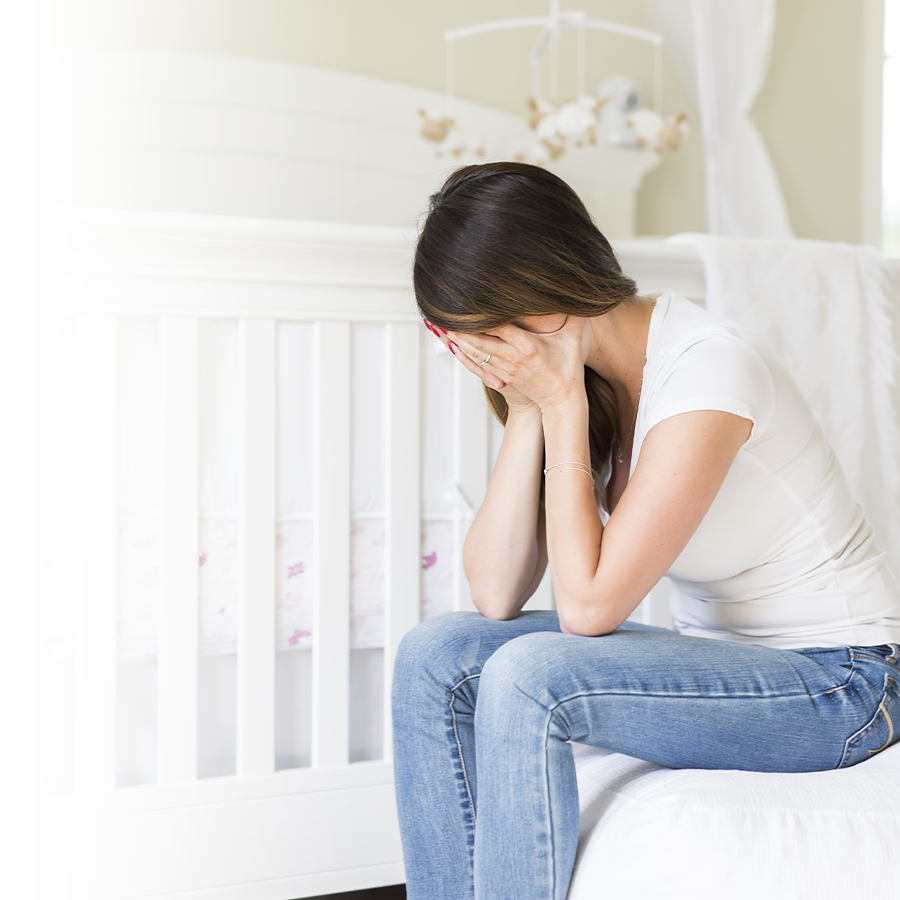Postnatal depression, also called post-partum depression, affects more than one out of ten women after childbirth. Shedding light on a relatively unknown disorder.
What is post-partum depression?
For many women who give birth to a child, it’s a dream come true. However, in some cases, the joy of welcoming a new baby into the world may be overshadowed by a mental health disorder called postnatal (or post-partum) depression.
Childbirth and the period that follows (post-partum) can be trying for all sorts of reasons: stress (sometimes intense), insecurity, adapting to multiple situations, lack of sleep, etc. So, it is normal to feel tired, vulnerable, worried, at times anxious or overwhelmed, particularly during the first two weeks. However, if this persists for more than a few weeks, it may suggest the onset of postnatal depression.
What are baby blues?
Baby blues is a temporary condition that is very common in the days following childbirth (often after two to three days). It affects up to 80% of women and is characterized by unusual symptoms such as moodiness or mood swings, fits of tears, difficulty concentrating or sleeping, etc.
The blues are due to a significant drop of hormones after childbirth. Although it isn’t serious, baby blues sometimes seem surprising, since the mother may be momentarily disconcerted, as may family members. Once this time has passed, the mother recovers her usual demeanor, but must still adapt to the inevitable changes that mark the arrival of a new baby.
How can you tell the difference between postnatal depression, baby blues or simply a natural reaction to stress and fatigue? Only a doctor or a qualified healthcare professional can make a diagnosis based on various factors, such as the severity and duration of signs and symptoms. If you think you may have post-partum depression, see a doctor promptly.
What are the signs and symptoms of post-partum depression?
The signs and symptoms of postnatal depression generally start to show in the four to eight weeks following childbirth. However, they can occur any time in the first year of the baby’s life.
Here are some examples:
- irritability or mood swings
- feelings of fatigue, weariness, sadness, guilt, despondency, emptiness, despair or anger
- significant anxiety
- tearfulness or uncontrolled tears
- difficulty performing activities or daily tasks, including taking care of the baby
- feelings of worthlessness, inability, incompetence or failure
- disinterest in the baby or difficulty/inability to take care of him/her
- insomnia or acute need of sleep, and
- change in appetite or weight
How can post-partum depression be treated?
As in other types of depression, postnatal depression requires medical treatment, ideally early on. Treatment is mainly based on two key measures: taking medication (i.e., antidepressants and anti-anxiety drugs) and psychological help. These measures are essential so the person can quickly restore health.
Many women hesitate or resist seeing a doctor or beginning treatment. Caution: post-partum depression may represent a threat to the mother’s or baby’s health and well-being. It must be taken seriously since, without treatment, it can have significant repercussions.
Certain medications are not compatible with breastfeeding, but many of them are. If you are breastfeeding, ask your pharmacist if the medication prescribed to you is safe for you and your baby. Additionally, never take over-the-counter medications or natural health products without first asking the advice of your pharmacist.
What else can help?
Here are a few tips intended for women affected by post-partum depression.
- Rest as much as you can and try to eat healthy.
- Take care of yourself by doing activities that you enjoy (a warm bath, soft music, meditation, etc.).
- Ask your spouse and your loved ones to help you. You need a sympathetic ear, empathy and support. Turn to the people you can trust.
- Don’t hesitate to share your feelings and concerns, and don’t stay in the shadows.
- Do pleasant activities with your little one (rocking baby, going for a stroll, visiting friends, etc.)
- Inquire about the resources available in your area (i.e., services at the CLSC, support groups or volunteer organizations).
- Remember that postnatal depression is a medical condition. You don’t have to be perfect, nor should you blame yourself or feel guilty. Be good to yourself.
When should you seek medical attention?
You should see a doctor if you:
- experience significant distress
- are unable to give the attention or care your baby needs
- have abnormal, worrisome, (dark) or obsessive thoughts
- have threatening thoughts towards yourself or your baby
When you experience difficulties, remember that your pharmacist is there to listen, help and advise you. Don’t hesitate to consult them!

